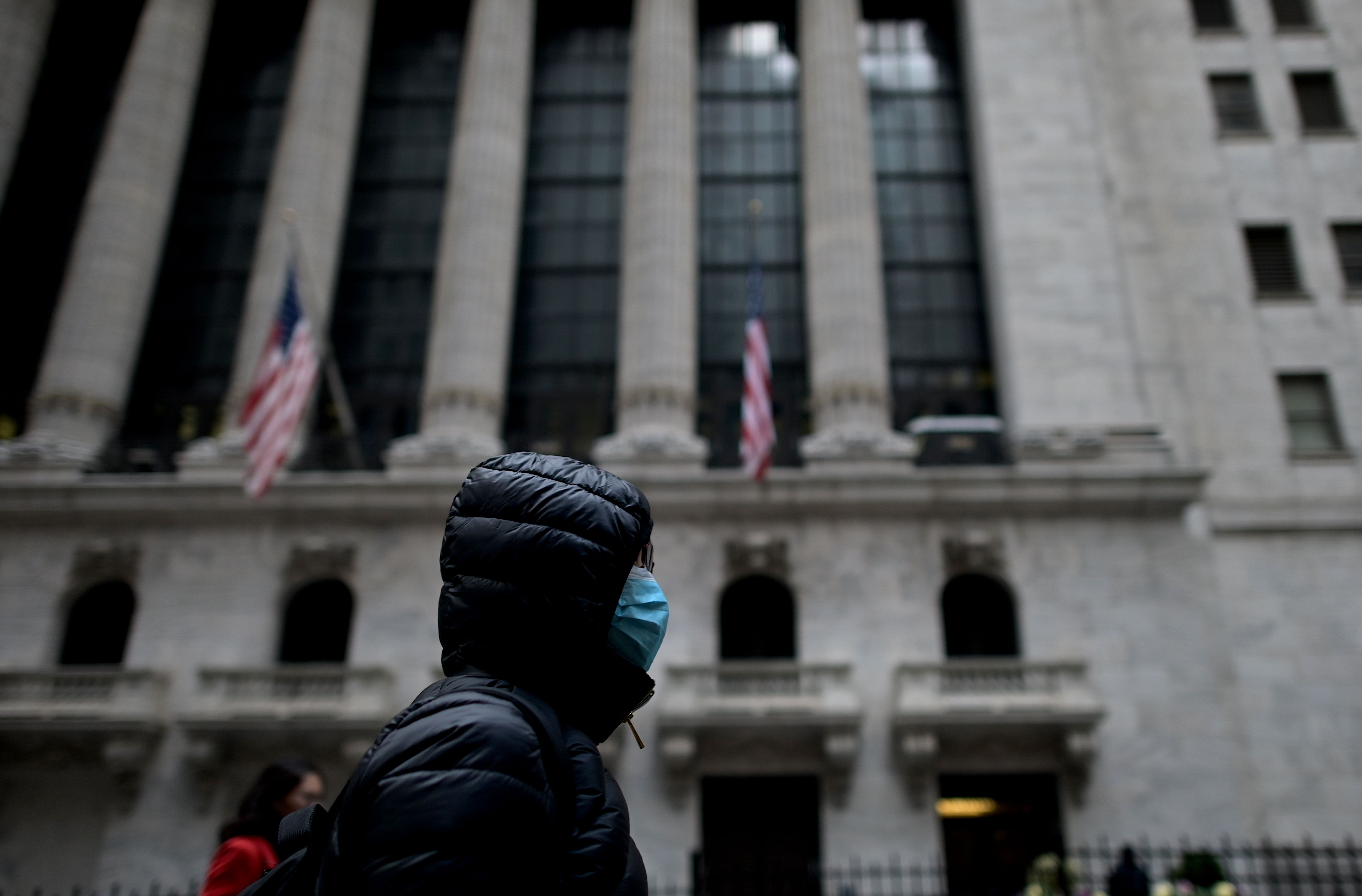A woman with a facial mask passes the New York Stock Exchange (NYSE) on February 3, 2020 at Wall Street in New York City.
Johannes Eisele | AFP | Getty Images
It’s no secret that coronavirus fears have infected the market and prompted concerns about a potential global economic downturn.
Yet even amid scary headlines and big market drops, most financial experts have two words of advice for individual investors: Don’t panic.
“The No. 1 regret among Americans is the failure to save for emergencies and the failure to save for retirement,” said Mark Hamrick, senior economic analyst at personal finance site Bankrate.com. “An episode like this is a solid reminder that we still need to do both of those things.”
More from Personal Finance:
Avoid this investing mistake as coronavirus chills markets
History shows stocks rebound quickly from disease outbreaks
Here’s how much you lose if you don’t grab that 401(k) match
And when it comes to your money, there are a few areas that could be influenced by the spread of the coronavirus.
Here’s what we know now — and what you need to think about before making any fearful knee-jerk moves that you could end up regretting.
Your portfolio
When it comes to your investments, the biggest questions to ask yourself are what your goals and time horizon are.
For example, if you’re investing for retirement, that’s a long-term endeavor. Even if you’re nearing retirement at 65 or 70, you’ll still likely live through multiple market cycles to come, Hamrick said.
Other short-term goals — such as buying a new house this spring or sending a child to college in the fall — are good reasons for you to pare down the amount of risk you’re taking.
But if fears of how the coronavirus could damage your net worth are keeping you up at night, it’s also a good time to revisit the risk you’re taking on.
That’s what certified financial planner Marguerita Cheng, CEO of Blue Ocean Global Wealth in Gaithersburg, Maryland, helped one client do in January by moving them from a concentrated position in China to a diversified international fund.
This is a good time to do a gut check to see if you can handle this level of market volatility, Cheng said. If you can’t, you may want to move to safer investments.
Anyone looking to sell their holdings right now needs to remember that it’s hard to time the market twice.
It should be a longer recovery for those airlines or travel-type stocks, even more so than it would be for the semiconductor or tech companies.
Daniel Milan
managing partner at Cornerstone Financial Services
“You may know that now is the time to get out,” Cheng said. “But you’re not going to know when to get in.”
Areas concerned investors may want to avoid include stocks related to airlines, cruise lines, casinos and gaming, said Daniel Milan, financial advisor and managing partner at Cornerstone Financial Services in Southfield, Michigan.
You may also want to reevaluate your exposure to multinational companies that rely on China or Asia for their supply chains, Milan said. That includes Apple, for example, as well as semiconductor companies.
“It should be a longer recovery for those airlines or travel-type stocks, even more so than it would be for the semiconductor or tech companies,” Milan said.
A Chinese man wears a protective mask as he walks during a snowfall in an empty commercial street on February 5, 2020 in Beijing, China.
Kevin Frayer | Getty Images
Small cap stocks could also take a beating, depending on how long the coronavirus’ impact lasts, said Shawn Cruz, manager of trader strategy at TD Ameritrade. Those companies often rely on suppliers in China or other countries that have exposure to the country, he said.
For individual investors, the key is not to make big, bold moves while trying to time the market.
“Buy cautiously; maybe do not put all the money you have to work right away,” Cruz said. “Take small bites here and there.”
Your mortgage costs may be lower
One positive effect of the current market is the impact it’s having on lowering mortgage rates, Greg McBride, chief analyst at Bankrate.com, said.
“This blows the refinancing door wide open, particularly for borrowers that had taken loans a year ago, when mortgage rates were 4.5%,” McBride said. “Knocking $150 off your monthly mortgage payment creates valuable breathing room in the household budget.”
If you’re in the market for a new mortgage, make sure you have your paperwork in order, McBride said. That includes bank statements, pay stubs and tax returns.
“Many lenders will be bottle-necked and the applications that get worked on will be those that have all their documents submitted,” McBride said.
Interest rates
As with any changes to the economy, all eyes are on the Federal Reserve to see what the central bank might do.
Before the coronavirus outbreak, investors were anticipating that the Fed could cut interest rates at some point this year.
“Obviously, in the current environment, that anticipation is only growing further,” Hamrick said.
Lower rates would make it cheaper for individuals to borrow money, but more difficult to make money on their savings.
Meanwhile, Fed officials have said they think interest rates are already positioned correctly. Fed Vice Chairman Richard Clarida stood by that in a speech he gave this week.
Fed Chair Jerome Powell likely won’t give another update on what the central bank is thinking until the next scheduled meeting on March 18, Hamrick said.
